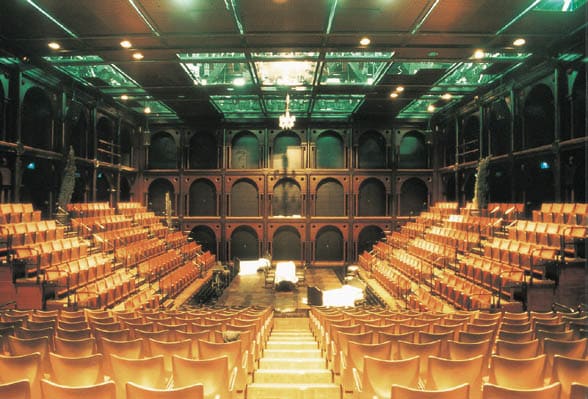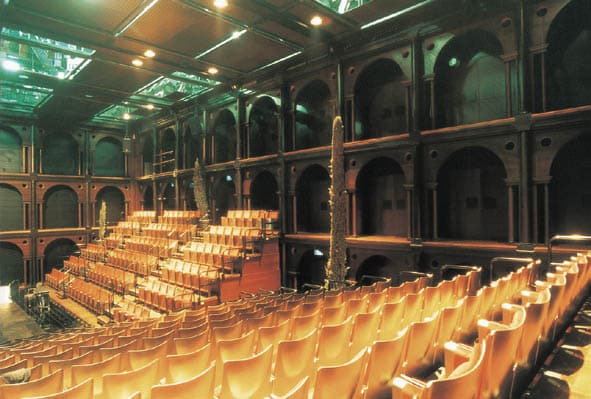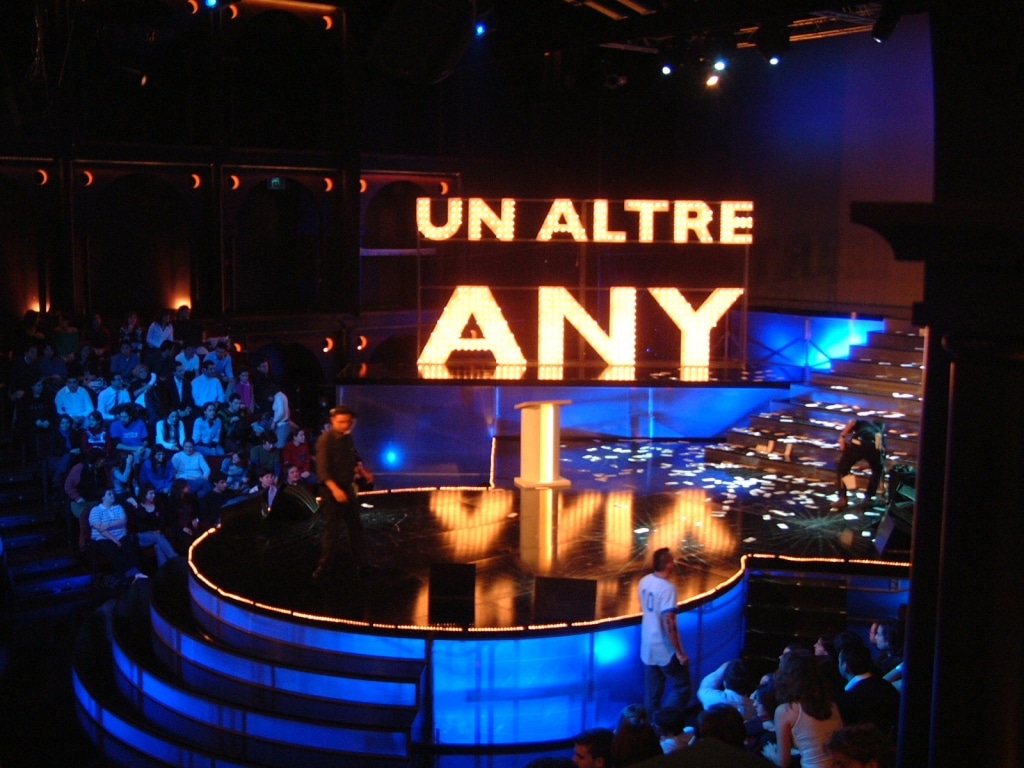Theatre Lliure

BARCELONA’S ICONIC TEATRE LLIURE:
A UNIQUE PERFORMING ARTS VENUE CELEBRATES TWO DECADES OF VERSATILITY IN ITS REIMAGINED SPACE
Barcelona’s dynamic theatre culture has its roots in the Teatre Lliure, or ‘Free Theatre,’ founded in 1976 by scenographer Fabià Puigserver along with other artists. Known for presenting great classical and contemporary theatre in Catalan, it was never just a performance venue, but also a cooperative society that developed its own productions, many of which have been exported to other cities across Europe and America. This unique cultural institution, originally located in the neighbourhood of Gràcia, eventually faced limitations in terms of capacity and theatrical technology. In 2001, the Teatre Lliure relocated to the former Palau de l’Agricultura in Montjuïc, dating from 1929, to strengthen and expand its role as a centre of creation on the European stage.
Space versatility: an important milestone in the Theatre Lliure’s history
The transformation of the old Palau into a state-of-the-art theatre complex involved the creation of a 720-seat flexible main hall named after Fabià Puigserver. To host major classic and avant-garde theatre productions, the Teatre was able to rely on space versatility without sacrificing audience accessibility or comfort. The Fabià Puigserver can indeed transform itself into different theatre forms on demand: from arena (audience completely surrounding the stage) to thrust (audience surrounding the stage on three sides) and traverse stage (audience on two sides of the stage), without forgetting end stage (audience facing the stage).
This innovative design was achieved through the installation of a series of 63 Gala Systems automated mobile platforms of 2.7m x 2.7m each, on top of which wagons housing three rows of five seats can be attached. This allows the seats to be rotated to face in any of four directions – north, south, east or west – while their concealment, together with the leveling of rows, makes it possible to create a flat or stepped empty floor space. In addition, a modular fourth wall with arches – a vertical partition visually identical to all other walls – can be automatically lowered right in front of the stage to transform the space into a kind of closed “square”. For José Luís Tamayo, the scenic consultant who handled the design of the new theatre performance spaces, this flexible hall is unique in the theatrical world because it transforms the performer-audience relationship and allows the seat count to be customized in response to each event.
Twenty years ago, the emblematic Theatre Lliure found, in the old Palau de l’Agricultura, a new home to pursue its commitment to Catalan culture. The creation of a main hall equipped with a versatile seating arrangement has helped support that mission by always putting spectators at the heart of the artistic experience.







